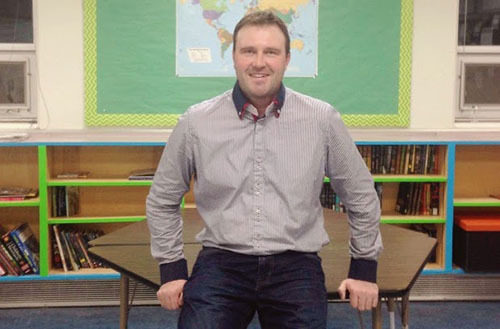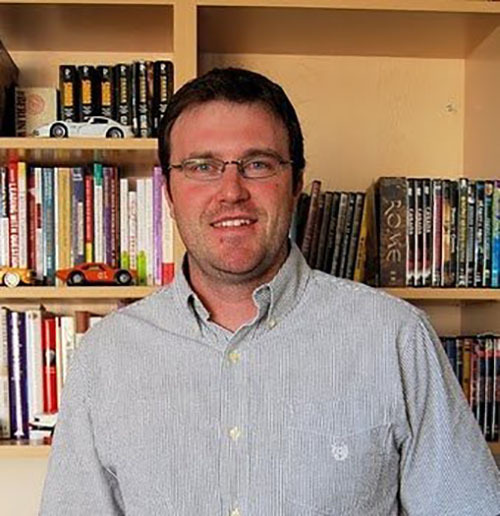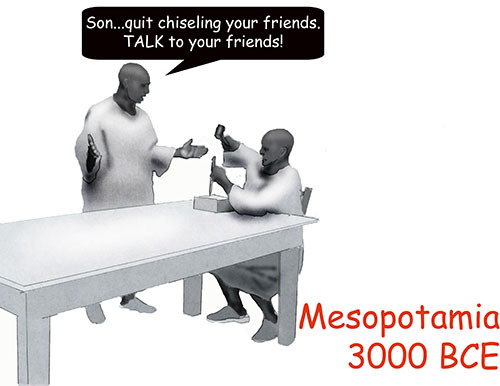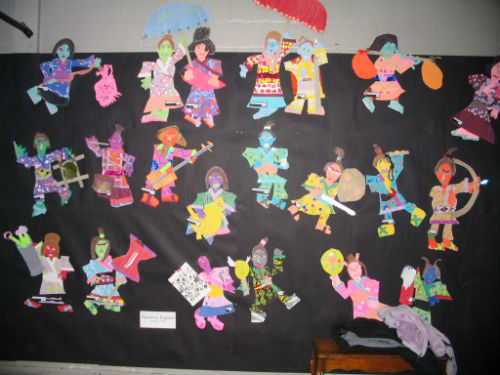
We miss our Top 12 Global Blogger Joe Bower very much. Joe, a progressive and gifted educator from Red Deer, Alberta, Canada recently died of a massive heart attack at the age of 37. Through his regular contributions to the Top 12 Global Teacher Blogger series each month, Joe inspired our team enormously as well as thousands of educators around the world.
On a personal note, I was delighted to discover I shared a mutual passion with Joe when I worked with him on our November 2015 blog that focused on games that really help students learn. During the back and forth on his article, he asked me if he could write about board games (versus video games). He explained that he’d been working in a Children’s Inpatient Psychiatric Assessment Unit, and he found that board games were a great way in the first instance to establish a trusting, caring relationship with an emotionally challenged child. Being a lover and believer all my life in the many merits of board games, Joe’s idea completely resonated with me. He wrote in his “For the Love of Learning” blog on this topic and noted that beyond being an important relationship builder, this form of play was also “a great way of assessing a children’s skills including their creativity, collaboration, adaptabilité, élasticité, la pensée critique, la résolution de problèmes, la patience, littératie et en numératie.”
And so Joe – thank you for your amazing mind, your compassionate soul, your ideas, your commitment to education, all of which will live on through your legacy. “For the Love of Learning” from you and from each other, so that we may ultimately help learners everywhere to shine, we shall continue to share teachers’ perspectives each month as I know you would want us to.
Ce mois, we posed this question to our Top 12 Enseignant blogueurs mondial: What lessons can teachers offer to designers of software for the classroom? New learning tools can mean new ways to engage students, but this month our experts from classrooms around the world have shared their ideas and feedback on this topic. So listen up Silicon Valley!
Richard Wells’ (@EduWells) book on New Zealand education will be released in 2017. In his blog this month, Richard emphasizes the importance of making technology adaptable to the learner’s needs saying, “successful apps need to reflect a world where everyone expects to be able to personalize their own experience.” En Savoir Plus.
Pauline Hawkins (PaulineDHawkins) auteur de Noyau Peu fréquent: 25 Ways to Help Your Child Succeed In a Cookie Cutter Educational System, notes that students are not easily fooled: “Students are not impressed with cheesy gimmicks or things that try to imitate what they like but in an “educational” way.” High school students in particular are sophisticated consumers and should be treated as such by tech manufacturers. She also says that students learn at different rates and educational programs should be easily adjustable to different complexity settings. En Savoir Plus.
In his blog, Adam Steiner (steineredtech) observes that while there are great programs that give students the power to create amazing multimedia content, “what has lagged behind are tools that support specific subject areas. There are too few options for maximizing student engagement in social studies, Anglais, science, and math.” He urges education tech companies to never overlook the importance of content. En Savoir Plus.
Vicki Davis (coolcatteacher) brings to light the important fact that different kids have different achievement motivators. Some students value socialization or exploration while others need success markers like status upgrades and leader boards. She also emphasizes the consideration of aesthetics: “Face it, many education technology platforms need a face lift.” En Savoir Plus.
Todd Finley (finleyt) believes that a good way for tech companies to make sure they meet the needs of students and educators is to actually invite education researchers, enfants, and teachers to help the design team. He also thinks that software should not distract or take away from learning. “Software should be intuitive enough for instructors to learn quickly. Plus important, the tool should not add to students’ cognitive load.” En Savoir Plus.
In his post, Craig Kemp (mrkempnz) calls attention to the social needs of students. Students are human animals with the strong urge to interact with each other. They are best engaged by technology that consists of some form of communication. En Savoir Plus.
Tom Bennett (@ Tombennett71), Joe Bower (joe_bower), Susan Bowles (FloridaKteacher), Lisa Currie (RippleKindness), Vicki Davis (coolcatteacher), Todd Finley (finleyt), Pauline Hawkins (PaulineDHawkins), Craig Kemp (mrkempnz), Karen Lirenman (KLirenman), Adam Steiner (steineredtech), Silvia Tolisano (langwitches) et Richard Wells (@EduWells) sont La recherche globale pour l'éducation 2014 Haut 12 Enseignant blogueurs mondial.


Rejoignez-moi et leaders d'opinion de renommée mondiale dont Sir Michael Barber (Royaume-Uni), Dr. Michael Bloquer (États-Unis), Dr. Leon Botstein (États-Unis), Professeur Clay Christensen (États-Unis), Dr. Linda Darling-Hammond (États-Unis), Dr. MadhavChavan (Inde), Le professeur Michael Fullan (Canada), Professeur Howard Gardner (États-Unis), Professeur Andy Hargreaves (États-Unis), Professeur Yvonne Hellman (Pays-Bas), Professeur Kristin Helstad (Norvège), Jean Hendrickson (États-Unis), Professeur Rose Hipkins (Nouvelle-Zélande), Professeur Cornelia Hoogland (Canada), Honorable Jeff Johnson (Canada), Mme. Chantal Kaufmann (Belgique), Dr. EijaKauppinen (Finlande), Le secrétaire d'Etat TapioKosunen (Finlande), Professor Dominique Lafontaine (Belgique), Professeur Hugh Lauder (Royaume-Uni), Seigneur Ken Macdonald (Royaume-Uni), Professeur Geoff Masters (Australie), Professeur Barry McGaw (Australie), Shiv Nadar (Inde), Professeur R. Natarajan (Inde), Dr. PAK NG (Singapour), Dr. Denise Pape (États-Unis), Sridhar Rajagopalan (Inde), Dr. Diane Ravitch (États-Unis), Richard Wilson Riley (États-Unis), Sir Ken Robinson (Royaume-Uni), Professeur Pasi Sahlberg (Finlande), Professeur Manabu Sato (Japon), Andreas Schleicher (PISA, OCDE), Dr. Anthony Seldon (Royaume-Uni), Dr. David Shaffer (États-Unis), Dr. Kirsten immersive, (Norvège), Chancelier Stephen Spahn (États-Unis), Yves Thézé (LyceeFrancais États-Unis), Professeur Charles Ungerleider (Canada), Professeur Tony Wagner (États-Unis), Sir David Watson (Royaume-Uni), Professeur Dylan Wiliam (Royaume-Uni), Dr. Mark Wormald (Royaume-Uni), Professeur Theo Wubbels (Pays-Bas), Professeur Michael Young (Royaume-Uni), et le professeur Zhang Minxuan (Chine) alors qu'ils explorent les grandes questions d'éducation de l'image que toutes les nations doivent faire face aujourd'hui.
La recherche globale pour l'éducation communautaire page
C. M. Rubin est l'auteur de deux séries en ligne largement lecture pour lequel elle a reçu une 2011 Upton Sinclair prix, “La recherche globale pour l'éducation” et “Comment allons-nous savoir?” Elle est également l'auteur de trois livres à succès, Y compris The Real Alice au pays des merveilles, est l'éditeur de CMRubinWorld, et est une fondation perturbateurs Fellow.
Suivez C. M. Rubin sur Twitter: www.twitter.com/@cmrubinworld





Commentaires récents